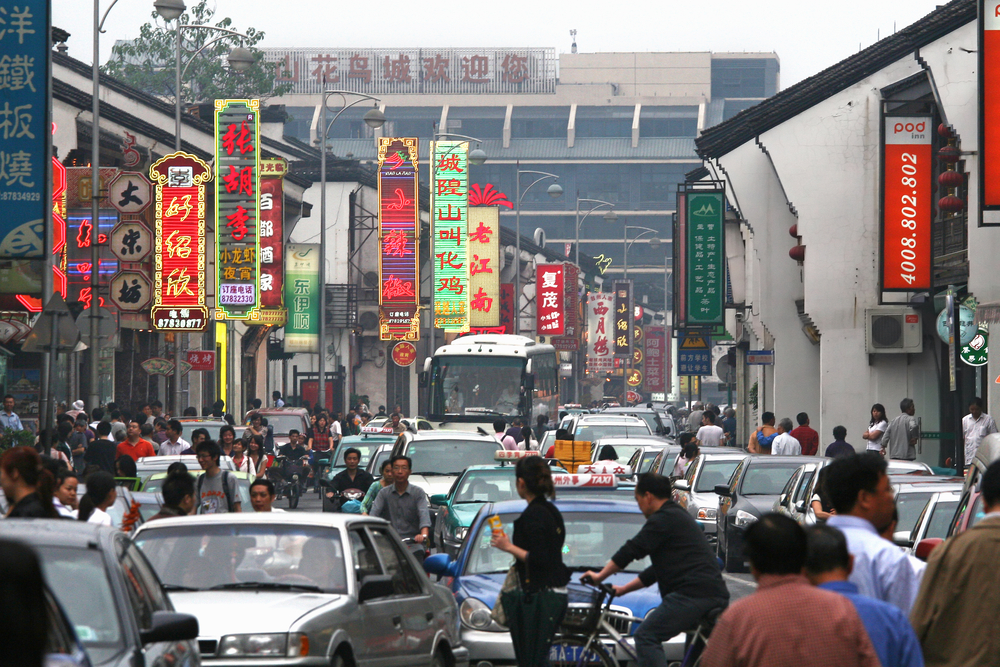Driving and Autos: Auto
The rate of traffic accidents in China, including fatal accidents, is among the highest in the world. Driving etiquette in China is still developing, and the average Chinese driver has less than five years’ experience behind the wheel. As a result, traffic is often chaotic, and right-of-way and other courtesies are often ignored. Travelers to China should note that cars, bicycles, motorbikes, trucks, and buses often treat road signs and signals as advisory rather than mandatory. Vehicles traveling in the wrong lanes frequently hit pedestrians and bicyclists.
Pedestrians should always be careful while walking near traffic. Most traffic accident injuries involve pedestrians or cyclists who are involved in collisions or who encounter unexpected road hazards (e.g., unmarked open manholes). Foreigners with resident permits can apply for PRC driver licenses; however, liability issues often make it preferable to employ a local driver. Child safety seats are not widely available in China. Foreign citizens who wish to ride bicycles in China are urged to wear safety helmets meeting. The number of tourists involved in serious and deadly traffic accidents in Beijing is increasing. The Embassy strongly encourages travelers to exercise special caution when crossing streets in China's cities as pedestrians do not have the right of way.
Note that many taxi cabs do not have functioning seatbelts for passengers. If seatbelts are available, visitors are strongly encouraged to use them to reduce the risk of injury. All drivers should be aware of the Chinese regulations regarding traffic accidents. Although a recent law states that drivers involved in a minor traffic accident should move their cars to the side of the road as soon as possible, in practice, the police often conduct investigations on the scene of the accident with the cars in their original positions. Visiting citizens who cannot express themselves clearly in Chinese should call the police as soon as possible after an accident and wait to move the cars until the police permit it.
If called to an accident, the police may take 20 minutes or longer to arrive. Once the police arrive, they will complete a preliminary investigation and arrange a time for you to report to the police station responsible for processing the accident scene. The police will prepare a written report in Chinese, describing the circumstances of the accident. They will present the report to you either at the scene, or more likely at the police station, and ask you to sign it verifying the details of the accident. Do not sign the report unless your Chinese is good enough to completely understand the report and you find it totally accurate. If you either do not understand it or believe it is partly or wholly inaccurate, you may either:
- Write a disclaimer on the report to the effect that you cannot read or understand the report and cannot attest to the accuracy thereof, but are signing it because of the police requirement that you do so, and then sign, or;
- Write your own version of the accident, in English, on the police form and indicate that your signature only attests to the accuracy of the English version.
Most incidents (such as an accident) will draw a crowd. If involved in a traffic accident, stay calm; road altercations can turn violent quickly, and the safest course is to be conciliatory and wait for police. A crowd will usually move in very close to the accident and participants. In many cases the bystanders consider themselves to be an ad hoc jury. They may call for money, usually from RMB 100 to 1,000, to be paid by the party they consider at fault. The amount is not necessarily relevant to the amount of damage. A certain amount of bargaining is normal, even at accidents involving two Chinese parties. If you feel physically threatened, call the police immediately, as well as the Embassy or nearest consulate. If a traffic police booth is nearby, you may wish to leave the vehicle and walk there to await the arrival of the police accident team.
Alternatively, you may walk to a shop, restaurant, or other location nearby in the immediate vicinity and wait for police. Your vehicle should not leave the scene of an accident. Your actions may serve to further incite the crowd if they perceive that you are fleeing to evade responsibility for your share of blame or payment of damages. The crowd may attempt to keep your vehicle at the accident scene by standing in the way or blocking the roadway with vehicles, bicycles and other objects.
Rental vehicles are available in urban areas, but they are not recommended for foreigners, as Chinese traffic laws are vague. Driving etiquette in China is developing. As a result, traffic is often chaotic, and right-of-way and other courtesies are often ignored. Travelers should note that cars and buses in the wrong lanes frequently hit pedestrians and bicyclists on sidewalks. Pedestrians should always be careful while walking near traffic. Hired cars with local drivers can be procured at daily and weekly rates.
Source: US Department of State
Copyright © 1993—2025 World Trade Press. All rights reserved.

 China
China 